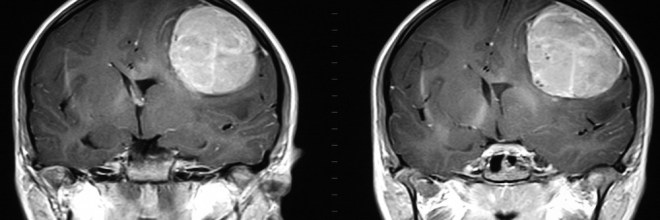
Researchers from Houston Methodist Hospital allow us a so-called mitochondrial smart bomb that can be used to deal with brain tumors by attacking the cell’s power source, according to a new study appearing in the April edition from the journal ChemMedChem.
In the research, Dr. David S. Baskin, director from the Houston Methodist Kenneth R. Peak Brain & Pituitary Tumor Center, Dr. Martyn Sharpe, Peak Center Head of Research, as well as their colleagues describe how an experimental drug treated brain tumor tissue by targeting mitochondria at the begining of laboratory tests involving animal models and human tissue cultures.
The drug, MP-MUS, was designed by Drs. Baskin and Sharpe and destroyed between 90 and 95 % of malignant glioma cells (a type of tumor that starts within the brain or spine and arises from glial cells) without appearing to have any adverse affect on healthy mind cells.
The finding compliments soon-to-be published research showing the same drug can be used to treat brain cancer grown in the brains of mice. They hope that they will be able to begin testing the drug in human numerous studies in the near future, possibly in 2016.
“We are extremely optimistic that we’ll get there,” Dr. Baskin said. “Our past work indicates that MP-MUS has very low toxicity until it enters tumor cells. Once it arrives, it is changed to the active form, carrying out a lot of damage where we would like it to, leaving healthy brain cells alone C a bit like a ‘smart bomb.’ To our knowledge, this is actually the first known example of selective mitochondrial chemotherapy, which we believe represents a powerful new method of brain cancer.”
“Because of in which the tumors can be found, and due to how they can infiltrate healthy tissue, surgery is often not helpful long term. The very best chemotherapy drug available today, temozolomide, only extends life from 9 to fifteen months, and patients’ quality of life during that period isn’t excellent.”
Dr. Baskin and Dr. Sharpe have been trying to find a way to deal with gliomas, which take into account up to 30 % of all tumors of the brain and nervous system. One of the areas they have centered on is treating the cancer by individuals mitochondrial that provide tumor cells with energy.
In cancer cells, they explain, thing about this feature is deactivated, causing cells to rely upon other system that generate energy C but nevertheless, tumor cells cannot grow and divide unless these pill-shaped powerhouses are healthy. By targeting an enzyme (MAO-B) that is over-expressed in brain tumor cells, MP-MUS cuts down on the negative effect on healthy cells while the drug becomes trapped inside tumor cells, where it attacks the mitochondrial DNA.
“We found that we’re able to achieve profound effects with MP-MUS at very low concentrations, around 75 micromolar,” said Dr. Baskin. “By contrast, temozolomide can be used at concentrations 2 to 3 times that to become of any use to patients. Our approach is designed to capitalize on what is going within the cells. Tumor cells have much more MAO-B, so when challenged, make even more MAO-B as a sort of defensive response. Hopefully that we’re one step in front of the cancer cells, as we are using that very fact to kill them.”
The study authors reported the toxicity of the drug to healthy cells remained low even when administered at concentrations of up to 180 micromolar. This article help scientists because they evaluate safety and efficacy trials in human patients. The Houston Methodist team has signed a deal with Virtici, LLC to develop MP-MUS, and it is currently while preparing toxicology studies, which are required just before clinical trials.

































